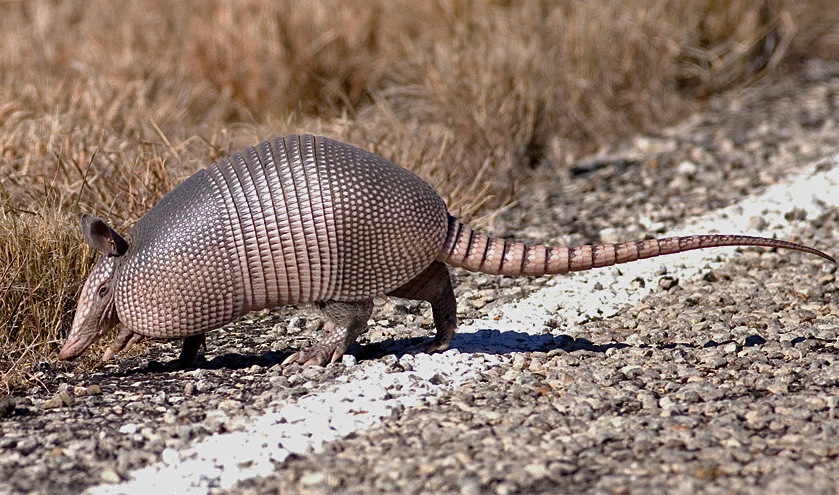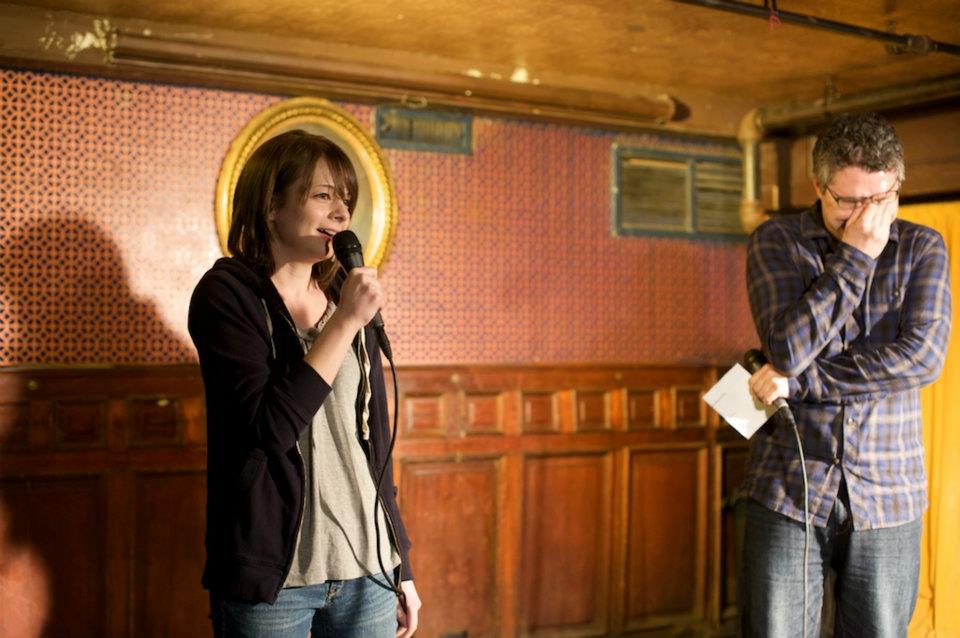 Scientists aren’t very good at telling stories.
Scientists aren’t very good at telling stories.
That’s a generalization, but true. I’m constantly cajoling scientists to tell me the story — hell, any story, any anecdote, any remotely narrative nugget — of their work. More scientists than you’d expect are good at simplifying a complicated technology or theory into layman’s terms. And many are good, sometimes too good, at distilling years of research into a few “bottom line” bullet points. But the scientist who tells a real story — where people do things in some kind of compelling sequence and ultimately arrive at something new — is rare.
So rare that last week I paid $10.70 to hear a few at an event called The Story Collider. Every month, half a dozen people take the stage in the basement of a popular Brooklyn bar. Each gets 10 to 15 minutes to entertain a packed audience of 120 beer-drinking hipsters with a tale of science. Story Collider’s mission is to demonstrate that science affects all of us, every day, and most of the performers aren’t scientists. But some are, and their stories don’t disappoint.
Last week, for example, evolutionary biologist Diane Kelly told us about her research on armadillo penises. In the early ’90s, as a graduate student at Duke University, in North Carolina, she wanted to study how penises work. (Erectile tissue has pretty unusual mechanical properties, after all.) But Kelly, a lifelong animal lover, hated the idea of killing animals for her project. She nearly fainted once when attempting to demonstrate how to euthanize a frog. So her clever, if extreme solution was to temporarily move to a place (Florida) that had a bounty of big-penis roadkill (armadillos).
Kelly’s tale was full of surprising twists and turns, culminating with a policeman and a bloody crotch. But its essence was about how she came to terms with the cold fact that her work would require some animals to die. Take a listen:
[soundcloud url=”http://api.soundcloud.com/tracks/61734109″ params=”auto_play=false&show_artwork=false&color=0a5464″ width=”100%” height=”166″ iframe=”true” /]
Animal experimentation is a weighty and contentious scientific issue, and grappling with it changed Kelly’s life. That power, along with her nerdy charm and a bunch of penis jokes, made for a moving story. When she finished, my husband turned to me and said, over cheers and applause, “That was fantastic! How do they find these people?”
I already knew from some of my science-writer friends that the Story Collider performers don’t just show up and talk. Their stories come alive through weeks of gentle shaping by the event’s producers, writers Erin Barker and Ben Lillie.
I asked Lillie how they manage to teach scientists to tell stories. It comes down to two things, he says. 1. Get them to outline a beginning, middle, and end. 2. Ask them to think about why the story matters and how it changed them.

Kelly loves narrative. Her husband writes science fiction; she has written middle-school textbooks, designed exhibits for science museums and even gave a TED talk. Her initial 100-word pitch email to Lillie already contained the basic arc and emotional punch of her story, “which was amazing — that never happens,” Lillie says. She also put many hours of work into the revision process. Even so, says humble Kelly, Lillie and Barker’s suggestions made her story sing.
She took her first conference call with them while at the World Science Fiction Convention with her husband. She sat in the hallway outside of her hotel room (the only place she could find cell-phone reception) and went through her rough outline, or as she describes it, “a brainstormed…glom, or kind of this [slurp noise]…blorf.” Lillie and Barker advised her to tighten up her beginning (by ditching several anecdotes about her childhood obsession with animals), beef up the middle (by explaining why her research was important and why she needed the armadillos), and create a meaningful ending (about how, touched by her Florida experience, she learned the most ethical ways to kill her specimens).
Three weeks and two conference calls later, Kelly took the stage and, despite a bit of stage fright, rocked the house. Because of her efforts, she successfully delivered a message she desperately wants the public to hear: that scientists love animals. “Everyone in my business thinks really hard about how we use them and how we treat them,” she says.
Obviously, this kind of public performance isn’t for everyone. But isn’t it in scientists’ best interests to give some thought to storytelling? How come most of them don’t seem the least bit interested in developing this skill?

I posed these questions to Lillie, who should know: He left his career as a particle physicist to become a professional storyteller. He said that although he agrees that the scientific community, as a whole, should value storytelling, he’s not sure that every single scientist needs to worry about it. “You’re going to get people who just really hate this kind of thing,” Lillie says. “Being able to talk to your neighbors better about your science is a good thing, but I don’t know if it’s worth the pain of going thorugh that process, if it’s not something you’re going to enjoy.”
Fair enough. To all you scientists out there: Storytelling won’t make your experiments work better or your data cleaner. And it may take some time and practice to get the hang of it. Does it take all that much, though? You don’t have to put in weeks of effort like Kelly did shaping and refining. Here’s a small suggestion, requiring minimal effort. The next time you’re describing your work to a non-scientist — especially if it’s a journalist — just take a few seconds to focus your thoughts. Where’s the beginning? Then what happened? And why does this matter to you? The rest of the conversation should naturally get into the middle and the end.
Doing this, I’m convinced, will make you more popular. If you can explain how you came to do your science, and why you’re still doing it, then you can get the rest of us — funding agencies, Congress, Brooklyn yuppies, the next generation of researchers — to understand why we should support it.
**
Photos from J Centavo, Diane Kelly and Kathleen Miller
Great post, Ginny. The advice is helpful for me (the writer), too, as I endeavor to explain my work to friends and fam. Also… remember how Ann used to say “science makes beautiful stories?” Makes it even more critical that scientists learn to tell their works’ stories well!
thanks, Meg! I actually thought about that Ann quote during my interview with Diane, who pointed out that evolutionary biology has a lot of stories built right in (it’s basically a field about history, after all). More difficult are fields like particle physics, or cell biology, or anything that’s really about fine-tuning a mechanism.
Ann wishes she could remember having said anything that smart. And true, it’s true! I loved this post, Ginny.
thanks this
Such a great post.
And I’m stealing this:
1. Get them to outline a beginning, middle, and end.
2. Ask them to think about why the story matters and how it changed them.
It is difficult. When I think about telling the story of my graduate research and I break down the important events, it turns 6 years of work into about a 20 minute story. I can add another 20 minutes if I want to bore someone with all the background information. Either way, it is depressing to think that a significant portion of my life only results in a 40 minute anecdote.
Ed, you’re going to our hearts here. I agree with Ginny. And I think of what the scientist does as a whole mountain range, and the story about it is just a cut across the peaks. And it’s just a story. Not that stories aren’t wonderful and even powerful, but they’re not the science that builds and builds and builds on itself and makes more and more science.
Aw, Ed, that’s a bad way to look at it!
Perhaps a more optimistic take is to think, Hey, by telling this awesome 20-minute story, that challenging/important period of my life can live on forever!